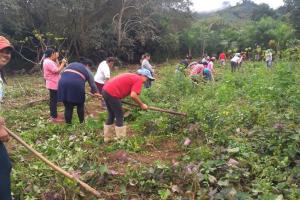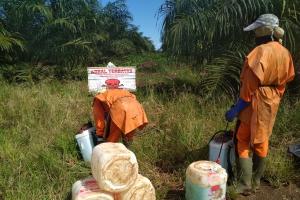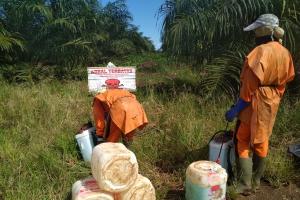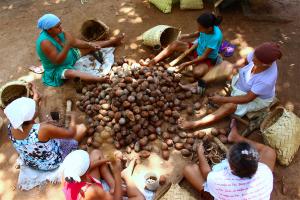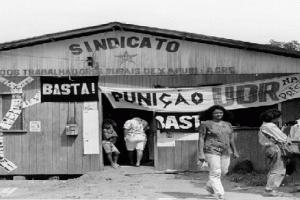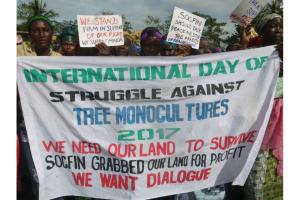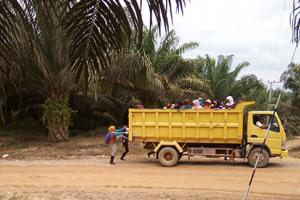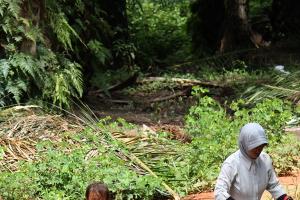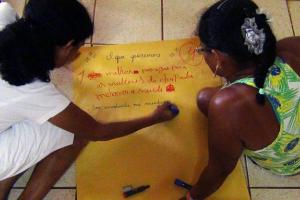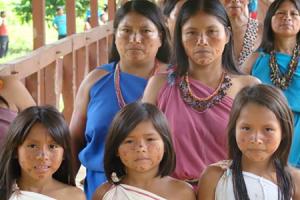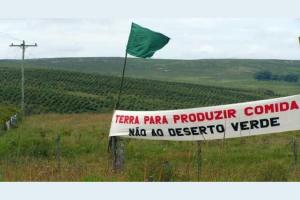Women in Resistance
When forests are destroyed, women in forest-dependent communities are hit hard: Their living conditions are particularly precarious; and providing food, medicine, materials and clean water becomes even harder. The traditional knowledge and wisdom that women pass down from generation to generation are also at risk. That is why women are often on the frontlines of the resistance to forest destruction.
With the Covid-19 crisis, the initiatives of movements and collectives based on feminist economics have gained strength. Feminist economics leads us to reflect on the updated mechanisms of control, while continuing to affirm the capacity for resistance and reconstruction of bodies in movement.
Exploitative working conditions in the oil palm plantations’ industry in Indonesia are persistent and the main victims are mostly women. Although this situation is often overlooked, the production process of the world’s largest producer of palm oil is strongly influenced by its existence.
The construction of the Suzano Pulp and Paper mill—along with nearby highways, the constant transport of wood, and the massive influx of workers—has brought a lot of devastation to communities. This is the testimony of an activist who is fighting for the territory.
The expansion of oil palm plantations in Indonesia has turned women into landless food buyers and cheap labour, with no adequate safety and health protection, for the plantation companies. (Available in Indonesian).
Women suffer many types of violence committed by oil palm plantations companies’ employers, security forces, police and military, which subsequently reinforce patriarchy and their roles and relations within society in general. (Available in Indonesian).
The organization and sexual division of labor and job insecurity in single crop activities affect the health of female workers and territorial changes derived from this model of production directly affect women.
